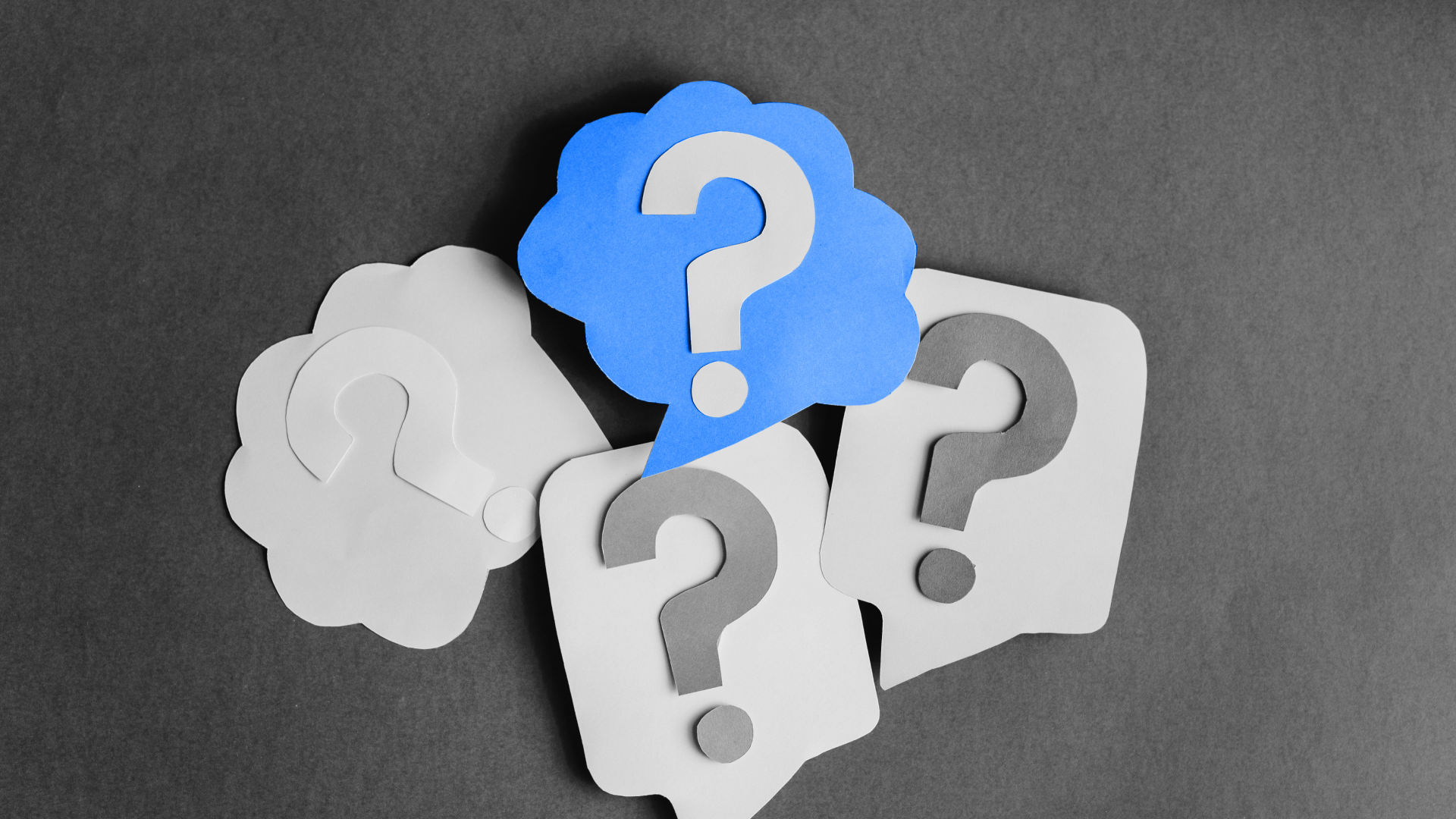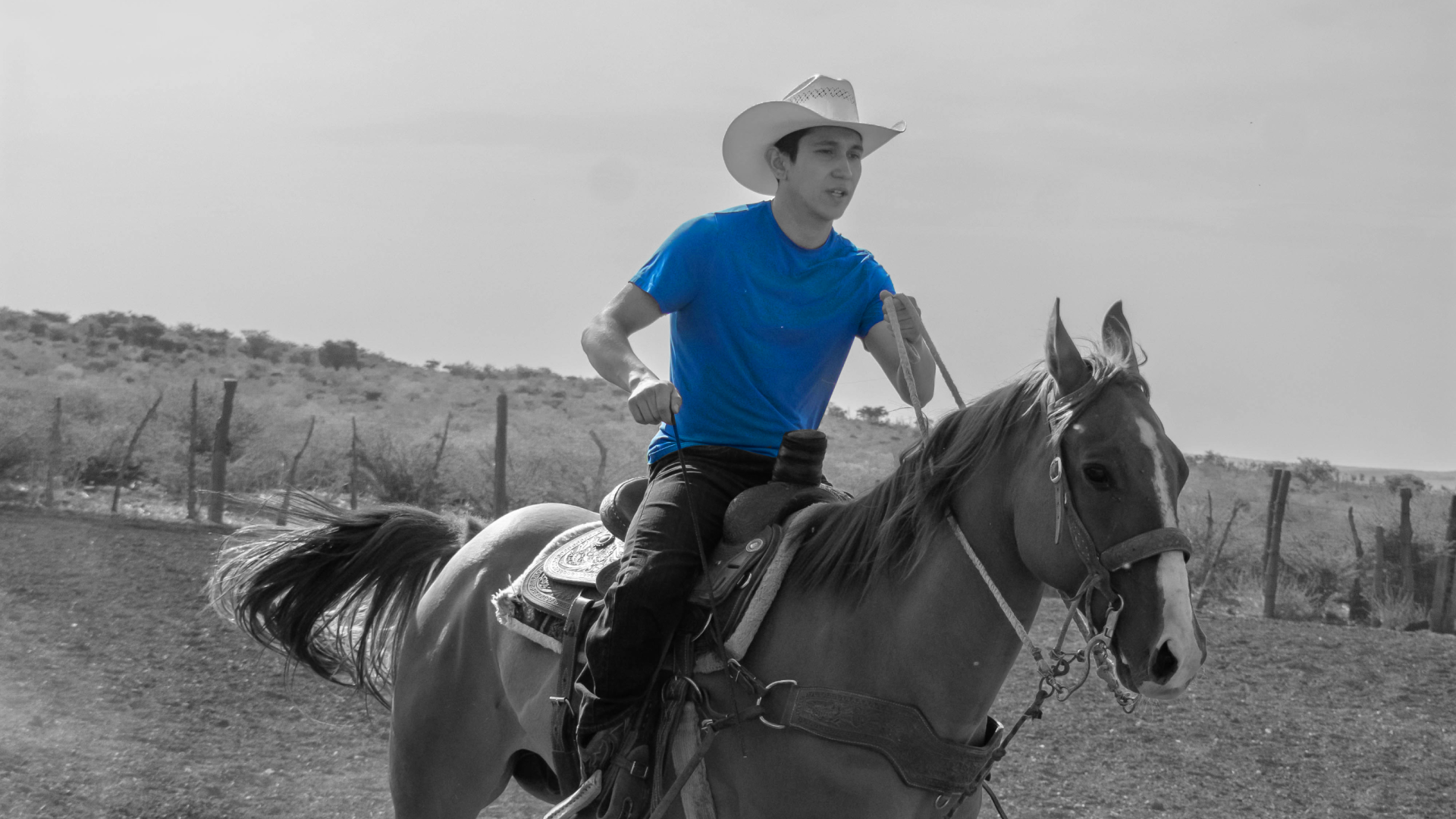Possessive pronouns (Possessivpronomen)
| Whose dog is it? Is it yours or mine? | Wessen Hund ist das? Ist es deiner oder meiner? |
| This is my dog. This is your dog. | Das ist mein Hund. Das ist dein Hund. |
| Whose notebook is this? Is it hers? | Wessen Notizbuch ist das? Ist es ihres? |
| Is this her notebook? | Ist das ihr Notizbuch? |
| I saw some dinner on the table. Was it hers? | Ich habe etwas vom Abendessen auf dem Tisch gesehen. War es ihres? |
| It was her dinner on the table. | Es war ihr Abendessen auf dem Tisch. |
| Whose book is this? Is it yours or mine? | Wessen Buch ist das? Ist es deins oder meins? |
| It’s mine. | Es ist meins. |
| Is this cat yours? | Gehört diese Katze dir? |
| No, it is hers. | Nein, es ist ihre. |
| Whose phone is it? His or hers? | Wessen Telefon ist das? Seins oder ihres? |
| Actually, it’s mine. | Eigentlich ist es meins. |
| Guys, is this your house? | Ist das Ihr Haus? |
| Yes, it’s ours. | Ja, es ist unseres. |
| Was that bike theirs? | War das ihr Fahrrad? |
| No, it’s just hers. | Nein, es ist nur ihres. |
| This is my book. | Das ist mein Buch. |
| Is this your pen? | Ist das dein Stift? |
| Yes, it’s her house. | Ja, es ist ihr Haus. |
| Did you read his diary? | Hast du sein Tagebuch gelesen? |
| What is this dog doing? That’s not its ball! | Was macht der Hund da? Das ist nicht sein Ball! |
| These are not our bags. | Das sind nicht unsere Taschen. |
| Did you see our new kitchen? | Hast du unsere neue Küche gesehen? |
| Is this their response? | Ist das ihre Antwort? |
| Are you guys invited to their wedding? | Bist du zu ihrer Hochzeit eingeladen? |
| The dog wagged its tail happily. | Der Hund hat fröhlich mit seinem Schwanz gewedelt. |
| The tree lost its leaves in the autumn. | Der Baum hat im Herbst seine Blätter verloren. |
| The company celebrated its 5th anniversary. | Die Firma feierte ihr 5-jähriges Jubiläum. |
| I can’t stand this dog! It barks all day long! | Ich kann diesen Hund nicht ausstehen! Er bellt den ganzen Tag lang! |
| I love my cat. She is great company. | Ich liebe meine Katze. Sie ist eine tolle Gesellschaft. |
| Sir, have you seen this turtle? It eats a lot! | Haben Sie diese Schildkröte gesehen? Sie frisst eine Menge! |
| I have had this turtle since I was a kid. He was a part of the family. | Ich habe diese Schildkröte schon seit meiner Kindheit. Sie war ein Teil der Familie. |
Quantifiers (Quantifikatoren)
| global warming | die globale Erwärmung |
| How much of the glacier melted because of global warming? | Wie viel des Gletschers ist durch die globale Erwärmung geschmolzen? |
| to cause the glacier melting | Gletscherschmelze verursachen |
| Did global warming cause a substantial amount of glacier melting? | Hat die globale Erwärmung eine beträchtliche Menge an Gletscherschmelze verursacht? |
| How many people came? | Wie viele Menschen sind gekommen? |
| to exceed expectations | Erwartungen übertreffen |
| The number of participants exceeded our expectations. | Die Anzahl der Teilnehmer hat unsere Erwartungen übertroffen. |
| Are there many people who vape? | Gibt es viele Menschen, die vapen? |
| an increase in | |
| A recent report has shown an increase in the number of people who vape. | Ein kürzlich veröffentlichter Bericht hat gezeigt, dass die Zahl der Menschen, die vapen, gestiegen ist. |
| Do you think many birds migrate to the same country each year? | Glaubst du, dass viele Vögel jedes Jahr in dasselbe Land ziehen? |
| a significant number | eine beträchtliche Zahl |
| A significant number of bird species migrate to the same regions each year. | Eine beträchtliche Zahl von Vogelarten zieht jedes Jahr in dieselben Regionen. |
| a lot of money | eine Menge Geld |
| He has a lot of money in his bank account. | Er hat eine Menge Geld auf seinem Bankkonto. |
| positive feedback | positive Rückmeldungen |
| to receive a lot of feedback | viele Rückmeldungen erhalten |
| We received a lot of positive feedback on our presentation. | Wir haben viele positive Rückmeldungen zu unserer Präsentation erhalten. |
| a lot of students | viele Schüler |
| Did you have a lot of students on the trip? | Hattest du viele Schüler auf der Reise? |
| lots of souvenirs | viele Souvenirs |
| Did you buy lots of souvenirs during your holiday? | Hast du während deines Urlaubs viele Souvenirs gekauft? |
| She has lots of friends from different countries. | Sie hat viele Freunde aus verschiedenen Ländern. |
| to lose weight | Gewicht verloren |
| You lost lots of weight. | Du hast viel Gewicht verloren. |
| plenty of food | genug zu essen |
| Do you think there is plenty of food for everyone? | Glaubst du, es gibt genug zu essen für alle? |
| plenty of time | genügend Zeit |
| You had plenty of time to do your homework! | Du hattest genügend Zeit, um deine Hausaufgaben zu machen! |
Prepositions of time and place (Präpositionen)
| in Poland | in Polen |
| She lives in Poland. | Sie lebt in Polen. |
| in New York City | in New York City |
| Did he live in New York City? | Hat er in New York City gelebt? |
| in the state of New York | im Staat New York |
| No, but he lived in the state of New York. | Nein, aber er lebte im Staat New York. |
| Since I was a kid, I’ve been dreaming of having a place in Manhattan. | Seit meiner Kindheit träume ich davon, ein Haus in Manhattan zu haben. |
| in the world | in der Welt |
| I wish to give you all the love in the world. | Ich möchte dir alle Liebe der Welt geben. |
| in your room | in deinem Zimmer |
| Alice, are you in your room? | Alice, bist du in deinem Zimmer? |
| in the car | m Auto |
| No, I am in the car outside. | Nein, ich bin draußen im Auto. |
| on Bond Street | in der Bond-Straße |
| on Oxford Street | in der Oxford-Straße |
| You can buy the best flowers on Oxford Street. | Die besten Blumen kann man in der Oxford-Straße kaufen. |
| on Malta | auf Malta |
| Do you have a holiday home on Malta? | Hast du ein Ferienhaus auf Malta? |
| on the table | auf dem Tisch |
| Did you leave your glasses on the table? | Hast du deine Gläser auf dem Tisch stehen lassen? |
| on the floor | auf dem Boden |
| Yes, but when I came back home, they were on the floor! | Ja, aber als ich nach Hause kam, standen sie auf dem Boden! |
| on the Vistula River | an der Weichsel |
| The event took place on the Vistula River. | Die Veranstaltung fand an der Weichsel statt. |
| on TV | im Fernsehen |
| I would love to be on TV one day. | Ich würde gerne eines Tages im Fernsehen auftreten. |
| on the Internet | im Internet |
| Did you see what they posted on the Internet? | Hast du gesehen, was sie im Internet gepostet haben? |
| at 221B Baker Street | in der Baker Street 221B |
| Didn’t he live at 221B Baker Street? | Hat er nicht in der Baker Street 221B gewohnt? |
| at home | zu Hause |
| Yeah, sure, and he loved it when Sherlock was at home! | Ja, sicher, und er liebte es, wenn Sherlock zu Hause war! |
| at work | bei der Arbeit |
| I can’t believe he said this to me at work! | Ich kann nicht glauben, dass er das zu mir bei der Arbeit gesagt hat! |
| at university | an der Uni |
| Will I meet you at university? | Treffen wir uns an der Uni? |
| at a party | auf einer Party |
| He met her at a party. | Er hat sie auf einer Party kennengelernt. |
| at your house | in deinem Haus |
| Isn’t it weird he still lives at your house? | Ist es nicht seltsam, dass er immer noch in deinem Haus wohnt? |
Conditionals (Konjunktiv II)
| If you mix red and yellow, you get orange. | Wenn man Rot und Gelb mischt, erhält man Orange. |
| Water boils if it reaches 100 degrees Celsius. | Wasser kocht, wenn es 100 Grad Celsius erreicht. |
| to set an alarm | einen Wecker stellen |
| If I don’t set an alarm, I oversleep. | Wenn ich mir keinen Wecker stelle, verschlafe ich. |
| to feel sick | schlecht werden |
| If I eat too much, I feel sick. | Wenn ich zu viel esse, wird mir schlecht. |
| to commit a crime | ein Verbrechen begehen |
| If you commit a crime, you go to jail. | Wenn du ein Verbrechen begehst, kommst du ins Gefängnis. |
| If she sees a rat, she screams. | Wenn sie eine Ratte sieht, schreit sie. |
| touch the fire | Feuer berühren |
| If you touch a fire, you get burned. | Wenn du ein Feuer berührst, verbrennst du dich. |
| If Anna doesn’t do her homework, her mother will be upset. | Wenn Anna ihre Hausaufgaben nicht macht, wird ihre Mutter wütend sein. |
| at the weekend | am Wochenende |
| If it rains at the weekend, we will stay home. | Wenn es am Wochenende regnet, werden wir zu Hause bleiben. |
| to come over | vorbeikommen |
| If she has time, she will come over. | Wenn sie Zeit hat, wird sie vorbeikommen. |
| to make it on time | rechtzeitig schaffen |
| If we leave earlier, we will make it on time. | Wenn wir früher losfahren, schaffen wir es noch rechtzeitig. |
| If the plane is delayed, they will be home very late. | Wenn das Flugzeug Verspätung hat, werden sie sehr spät nach Hause kommen. |
| If we start a diet today, we will be healthy soon. | Wenn wir heute mit einer Diät beginnen, werden wir bald gesund sein. |
| If she calls him, he will come here. | Wenn sie ihn anruft, wird er hierherkommen. |
| If we lived in the USA, we would speak English better. | Wenn wir in den USA leben würden, würden wir besser Englisch sprechen. |
| an only child | ein Einzelkind |
| If I had a brother, I wouldn’t be an only child. | Wenn ich einen Bruder hätte, wäre ich kein Einzelkind. |
| If they were nicer, I would talk to them. | Wenn sie netter wären, würde ich mit ihnen reden. |
| If I had more money, I would buy a castle. | Wenn ich mehr Geld hätte, würde ich ein Schloss kaufen. |
| Would you marry her if she were younger? | Würdest du sie heiraten, wenn sie jünger wäre? |
| If she were slimmer, she would become a model. | Wenn sie schlanker wäre, würde sie ein Model werden. |
| If I were you, I would apologise to her. | Wenn ich du wäre, würde ich mich bei ihr entschuldigen. |
| in my place | an meiner Stelle |
| What would you do if you were me? | Was würdest du tun, wenn du an meiner Stelle wärst? |
| If they invited me, I would come. | Wenn sie mich einladen würden, würde ich kommen. |
| to pass an exam | eine Prüfung bestehen |
| If you had learnt more, you would have passed the exams. | Wenn du mehr gelernt hättest, hättest du die Prüfungen bestanden. |
| at home | zu Hause |
| If it had rained, we would have stayed at home. | Wenn es geregnet hätte, wären wir zu Hause geblieben. |
| to win the championship | die Meisterschaft gewinnen |
| If they had won the championship, would they have celebrated? | Wenn sie die Meisterschaft gewonnen hätten, hätten sie dann gefeiert? |
| If he had forgotten to buy flour, he would have had to go to the supermarket again. | Wenn er vergessen hätte, Mehl zu kaufen, hätte er noch einmal in den Supermarkt gehen müssen. |
| If you had told me about your struggle, I would have helped you. | Wenn du mir von deinen Schwierigkeiten erzählt hättest, hätte ich dir geholfen. |
Modal verbs (Modalverben)
| I can do it. It’s not hard. | Ich kann es schaffen. Es ist nicht schwer. |
| to speak French fluently | fließend Französisch sprechen |
| Anna can speak French fluently. | Anna kann fließend Französisch sprechen. |
| Caroline could play poker when she was ten years old. | Caroline konnte schon Poker spielen, als sie zehn Jahre alt war. |
| Kat could talk to me for hours. | Kat konnte stundenlang mit mir reden. |
| right away | sofort |
| They were able to catch the gangster right away. | Sie konnten den Gangster sofort fassen. |
| They weren’t able to catch the gangster right away. | Sie waren nicht in der Lage, den Gangster sofort zu fassen. |
| They couldn’t catch the gangster right away. | Sie konnten den Gangster nicht sofort fassen. |
| Can you pass me my wallet? | Kannst du mir meine Brieftasche geben? |
| Could you tell me everything? | Könntest du mir alles sagen? |
| You may sit, sir. | Sie dürfen sich setzen. |
| May I see the king? | Dürfte ich den König sehen? |
| You might want to read the documents first. | Du möchtest die Dokumente vielleicht zuerst lesen. |
| to pay the water bill | die Wasserrechnung bezahlen |
| I have to pay the water bill. I have no other choice. | Ich muss die Wasserrechnung bezahlen. Ich habe keine andere Wahl. |
| to break a leg | Bein brechen |
| I have to go to the hospital. I broke my leg. | Ich muss ins Krankenhaus. Ich habe mir das Bein gebrochen. |
| I must tell you what I saw! | Ich muss dir erzählen, was ich gesehen habe! |
| I must stop calling her. It’s not good for any of us. | Ich muss aufhören, sie anzurufen. Das ist für niemanden von uns gut. |
| You mustn’t tell her. | Du darfst es ihr nicht sagen. |
| You mustn’t smoke in the airplane, sir. | Du darfst im Flugzeug nicht rauchen. |
| You guys don’t have to do this for me. | Ihr müsst das nicht für mich tun. |
| You don’t have to wait until the end of the year. | Du musst nicht bis zum Ende des Jahres warten. |
| to call from the landline | anrufen vom Festnetz |
| They must be at home. She just called me from the landline. | Sie müssen zu Hause sein. Sie hat mich gerade vom Festnetz aus angerufen. |
| She hasn’t replied to any of my messages. Her phone may be off. | Sie hat auf keine meiner Nachrichten geantwortet. Vielleicht ist ihr Telefon ausgeschaltet. |
| cancelled class | der Kurs der ausfällt |
| Paul might come to visit me at work if his class gets canceled. | Paul kommt mich vielleicht auf der Arbeit besuchen, wenn sein Kurs ausfällt. |
| Kim couldn’t leave her kids! | Kim konnte ihre Kinder nicht allein lassen! |
| This can’t be true! | Das kann doch nicht wahr sein! |
| I wonder why she didn’t call me. She might have been away. | Ich frage mich, warum sie mich nicht angerufen hat. Vielleicht war sie verreist. |
Passive voice (Passiv)
| The CV must be written in Polish. | Der Lebenslauf muss auf Polnisch verfasst sein. |
| The CV must have been written in Polish. | Der Lebenslauf muss auf Polnisch verfasst worden sein. |
| Someone will warn her. She will be warned. | Jemand wird sie warnen. Sie wird (von jemandem) gewarnt werden. |
| I will hear her soon. She will be heard soon. | Ich werde sie bald hören. Sie wird bald (von mir) gehört werden. |
| I will call him immediately. The call will be made immediately. | Ich werde ihn sofort anrufen. Der Anruf wird sofort (von mir) getätigt werden. |
| Is he tested once a month? Yes, he is./ No, he isn’t. | Wird er einmal im Monat getestet? Ja, wird er. / Nein, wird er nicht. |
| It should be done. | Das sollte erledigt werden. |
| It should have been done. | Das hätte erledigt werden sollen. |
| Is it used once a week? It is not used once a week. | Wird es einmal pro Woche benutzt? Er wird nicht einmal pro Woche benutzt. |
| I’m feeding the cat now. The cat is being fed now. | Ich füttere jetzt die Katze. Die Katze wird jetzt (von mir) gefüttert. |
| This place used to be admired by many. | Dieser Ort wurde früher von vielen bewundert. |
| The house is going to be built next year. | Das Haus soll im nächsten Jahr gebaut werden. |
| Someone is watching them. They are being watched. | Jemand beobachtet sie. Sie werden (von jemandem) beobachtet. |
| Was she caught? No, she wasn’t. /Yes, she was. | Wurde sie gefasst? Nein, wurde sie nicht. /Ja, wurde sie. |
| He accepted the gift. The gift was accepted by him. | Er nahm das Geschenk an. Das Geschenk wurde (von ihm) angenommen. |
| He is going to interview me. I’m going to be interviewed. | Er wird mich befragen. Ich werde (von ihm) befragt werden. |
| I must finish my chores. My chores must be finished. | Ich muss meine Hausarbeit erledigen. Meine Hausarbeit muss (von mir) erledigt werden. |
| I clean my fridge once a year. My fridge is cleaned once a year. | Ich reinige meinen Kühlschrank einmal im Jahr. Mein Kühlschrank wird einmal im Jahr (von mir) gereinigt. |
| You may not be given another taste. | Du bekommst vielleicht keine weitere Kostprobe. |
| She reads this book often. This book is often read by her. | Sie liest dieses Buch oft. Dieses Buch wird oft (von ihr) gelesen. |
| Is he tested once a month? He is not tested once a month. | Wird er einmal im Monat getestet? Er wird nicht einmal im Monat getestet. |
| You may not have been given another taste. | Du hättest vielleicht keine weitere Kostprobe bekommen. |
| The firefighter is checking the house. The house is being checked by the firefighter. | Der Feuerwehrmann kontrolliert das Haus. Das Haus wird (von dem Feuerwehrmann) kontrolliert. |
| They have destroyed his marriage. His marriage has been destroyed. | Sie haben seine Ehe zerstört. Seine Ehe ist (von ihnen) zerstört worden. |
| The guest has eaten the food. The food has been eaten by the guest. | Der Gast hat das Essen gegessen. Das Essen ist (vom Gast) gegessen worden. |
| The child has opened the gift. The gift has been opened by the child. | Das Kind hat das Geschenk geöffnet. Das Geschenk ist (von dem Kind) geöffnet worden. |
| Someone stole a car last night. A car was stolen last night. | Jemand stahl letzte Nacht ein Auto. Ein Auto wurde letzte Nacht (von jemandem) gestohlen. |
| She accepted the proposal. The proposal was accepted by her. | Sie nahm den Antrag an. Der Antrag wurde (von ihr) angenommen. |
| Someone saw a suspect at 1 a.m. The suspect was seen at 1 a.m. | Jemand sah einen Verdächtigen um 1 Uhr nachts. Der Verdächtige wurde (von jemandem) um 1 Uhr nachts gesehen. |
| Someone was repairing the house. My house was being repaired. | Jemand hat das Haus repariert. Mein Haus ist (von jemandem) repariert worden. |
| She was preparing the food. The food was being prepared. | Sie hat das Essen zubereitet. Das Essen ist (von ihr) zubereitet worden. |
| John will clean the house. The house will be cleaned. | John wird das Haus putzen. Das Haus wird (von John) geputzt werden. |
| The team will win the match. The match will be won by the team. | Die Mannschaft wird das Spiel gewinnen. Das Spiel wird (von der Mannschaft) gewonnen werden. |
| They will build a new bridge. A new bridge will be built. | Sie werden eine neue Brücke bauen. Eine neue Brücke wird (von ihnen) gebaut werden. |
Talking about present (Präsens)
| always | immer |
| They always have time for us. | Sie haben immer Zeit für uns. |
| usually | normalerweise |
| He usually buys food on Sunday. | Normalerweise kauft er sonntags Lebensmittel ein. |
| often | oft |
| She very often needs our help. | Sie braucht sehr oft unsere Hilfe. |
| We often buy books for our daughters. | Wir kaufen oft Bücher für unsere Töchter. |
| sometimes | manchmal |
| rarely | selten |
| never | nie |
| every day/week/month… | jeden Tag/jede Woche/jeden Monat… |
| She plays basketball every day. | Sie spielt jeden Tag Basketball. |
| once a week/month/year… | einmal pro Woche/Monat/Jahr… |
| twice an hour/minute… | zweimal pro Stunde/Minute… |
| twenty times a day | zwanzig Mal am Tag |
| on Mondays/Tuesdays | montags/dienstags |
| These kids are Italian. | Diese Kinder sind Italiener. |
| He is a good friend. | Er ist ein guter Freund. |
| She is in Amsterdam. | Sie ist in Amsterdam. |
| from Ukraine | aus der Ukraine |
| I am from Ukraine. | Ich komme aus der Ukraine. |
| I’m hungry. | Ich bin hungrig. |
| We are thirsty. | Wir sind durstig. |
| I am at home. | Ich bin zu Hause. |
| Water boils at 100°C. | Wasser kocht bei 100°C. |
| to orbit the Earth | die Erde umkreisen |
| The Moon orbits the Earth. | Der Mond umkreist die Erde. |
| to revolve around the Sun | sich um die Sonne drehen |
| The Earth revolves around the Sun. | Die Erde dreht sich um die Sonne. |
| Two plus two equals to four. | Zwei plus zwei ist gleich vier. |
| I want to learn Polish. | Ich möchte Polnisch lernen. |
| They know English very well. | Sie können sehr gut Englisch. |
| We often buy books for our daughters. | Wir kaufen oft Bücher für unsere Töchter. |
| She likes me. | Sie mag mich. |
| She knows many words in Dutch. | Sie kennt viele Wörter auf Niederländisch. |
| He speaks French. | Er spricht Französisch. |
| She does her best. | Sie gibt ihr Bestes. |
| She goes home. | Sie geht nach Hause. |
Talking about past (Präteritum & Perfekt)
| since we were nine | seit wir neun waren |
| He has been my best friend since we were nine. | Er ist mein bester Freund, seit wir neun waren. |
| for more than eight years | seit mehr als acht Jahren |
| I have worked for this company for more than eight years. | Ich arbeite seit mehr als acht Jahren für dieses Unternehmen. |
| just | gerade |
| She has just written the letter. | Sie hat gerade den Brief geschrieben. |
| This journey has been a very pleasant surprise. | Diese Reise war eine sehr angenehme Überraschung. |
| I’ve broken my leg. | Ich habe mir das Bein gebrochen. |
| Have you got the present yet? | Hast du das Geschenk schon bekommen? |
| It’s the first time I’ve been to Amsterdam. | Ich bin zum ersten Mal in Amsterdam. |
| I have watched this film with you for the last time. | Ich habe diesen Film mit dir zum letzten Mal gesehen. |
| It’s the best time I’ve had in months. | So viel Spaß hatte ich schon seit Monaten nicht mehr. |
| We have played football since we were children. | Wir spielen seit unserer Kindheit Fußball. |
| He has not known her for a long time. | Er hat sie lange nicht gekannt. |
| She hasn’t had a day off since 1999. | Sie hat seit 1999 keinen Tag frei gehabt. |
| Have you ever thought about going to Asia? | Hast du jemals daran gedacht, nach Asien zu gehen? |
| This is the most ridiculous thing you’ve ever told me. | Das ist das Lächerlichste, was du mir je erzählt hast. |
| They have never been on holiday in South Asia. | Sie haben noch nie in Südasien Urlaub gemacht. |
| Recently I’ve seen her twice. | In letzter Zeit habe ich sie zweimal gesehen. |
| Lately I haven’t slept well. | In letzter Zeit habe ich nicht gut geschlafen. |
| yet | schon |
| not yet | noch nicht |
| Have you talked to her yet? | Hast du schon mit ihr gesprochen? |
| No, I haven’t talked to her yet. | Nein, ich habe noch nicht mit ihr gesprochen. |
| He hasn’t spoken to them yet. | Er hat noch nicht mit ihnen gesprochen. |
| Has she told you that ridiculous joke yet? | Hat sie dir diesen lächerlichen Witz schon erzählt? |
| already | schon |
| We’ve just done some grocery shopping. | Wir haben gerade Lebensmittel eingekauft. |
| They have already met her, but we have not yet. | Sie haben sie schon kennengelernt, wir aber noch nicht. |
| so far | bisher |
| I’ve been to Spain once so far. | Ich war bisher einmal in Spanien. |
Talking about future (Futur I)
| tomorrow | morgen |
| He will work all day tomorrow. | Er wird morgen den ganzen Tag arbeiten. |
| Tomorrow I will tell you an interesting story. | Morgen werde ich dir eine interessante Geschichte erzählen. |
| It will not be easy. | Es wird nicht einfach sein. |
| I can’t do it on Wednesday, so I will do it on Thursday. | Am Mittwoch schaffe ich es nicht, also werde ich es am Donnerstag tun. |
| Maybe I will buy this apartment. | Vielleicht werde ich diese Wohnung kaufen. |
| Someone is at the door. I will go to see who it is. | Jemand ist an der Tür. Ich werde hingehen und nachsehen, wer es ist. |
| I think that … | Ich denke dass … |
| It’s late. I think I will go to bed. | Es ist schon spät. Ich denke, ich werde ins Bett gehen. |
| It’s hot in here. I will open the window. | Es ist heiß hier drin. Ich werde das Fenster öffnen. |
| I think it will rain tomorrow. | Ich glaube, es wird morgen regnen. |
| she hopes | sie hofft |
| She hopes you will apologize. | Sie hofft, dass du dich entschuldigen wirst. |
| we believe | wir glauben |
| We believe it won’t be a problem. | Wir glauben, dass es kein Problem sein wird. |
| I’m afraid | ich fürchte |
| I’m afraid it won’t be possible. | Ich fürchte, es wird nicht möglich sein. |
| she’s sure | sie ist sicher |
| She’s sure she will be the best candidate. | Sie ist sicher, dass sie die beste Kandidatin sein wird. |
| I promise | ich verspreche |
| to hurt someone | jemandem wehtun |
| I promise I will never hurt you. | Ich verspreche, dass ich dir niemals wehtun werde. |
| Stop, or I will call the police. | Hör auf, oder ich rufe die Polizei. |
| Will you marry me? | Willst du mich heiraten? |
| We will spend some time together tonight, | Wir werden heute Abend etwas Zeit miteinander verbringen. |
| She will never forget him. | Sie wird ihn nie vergessen. |
| I will show my parents how good I am. | Ich werde meinen Eltern zeigen, wie gut ich bin. |
| At the beginning, you will see nothing. | Am Anfang wirst du nichts sehen. |
| next month | nächsten Monat |
| She will marry me next month. | Sie wird mich nächsten Monat heiraten. |
| Next month it will be October. | Nächsten Monat wird es Oktober sein. |
| They will not take any holiday in April. | Sie werden im April keinen Urlaub nehmen. |
| Will I get the job? | Werde ich die Stelle bekommen? |
| Will you take her as your wife? | Wirst du sie als deine Frau nehmen? |














